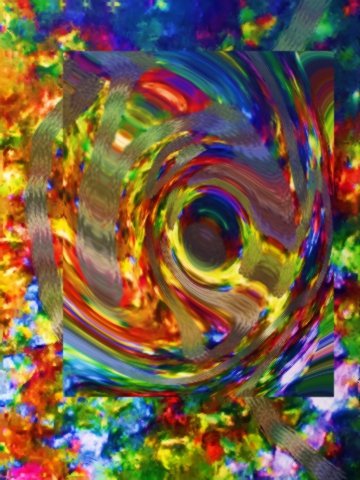Cleanliness is Next to Devilishness
Text and image by Rick McVicar
The bulk of the seventh chapter in the Gospel of Mark is devoted to a story contradicting the age-old adage that cleanliness is next to Godliness (7:1-23, NIV).
Jesus’ disciples are caught by the religious leaders eating food without washing their hands. Jesus defends them by complaining about how the religious leaders treat their parents, a completely illogical deflection from the accusation. Somehow, the religious leaders are caught in an hypocrisy.
For now, let’s concentrate on the washing of hands, pots, pans and utensils required for eating. This passage takes on an entirely new meaning following the COVID-19 pandemic. Sanitation measures that previously had seemed extreme were put into use. A 20-second rule for washing hands before eating and after toilet use was put into place.
What we now know about germs and how diseases are spread completely upends Jesus’ disciples practice of skipping the hand washing.
If this story were to be placed into a children’s Bible, the average kindergartner would now say, “Yuck.”
If this is a lesson on nature, then this is a lesson that having a relationship with nature includes a relationship with germs.
Actually, that is not such a bad lesson to learn. For instance, I wash my head every morning with a shampoo that is combined with a body wash. Why? I do not really know. I use bar soap, so I do not know why I need body wash added to my shampoo. I just buy it because it is a cheap brand and I save a couple of bucks.
Recently, I have been reading Rachel Carson’s A Silent Spring, a book published in 1962 that led to the governmental ban on DDT pesticides. The book is a litany of agricultural chemicals with details of how they harm all types of animal species, including humans.
The book has been hard for me to read, especially because I lost a cousin in the past year to a neurological disease. He had been a farmer and I have wondered if agricultural chemicals had something to do with his death.
Returning to the subject, I think Jesus is telling us that an obsession over cleanliness can be taken to an extreme and become detrimental to human relationships. Likewise, Carson’s book argues that an obsession over insects can become extreme and detrimental to the planet. While the religious leaders of Jesus’ day used ritual and ceremony to maintain cleanliness, the corporate leaders of our day push chemicals for much the same reason.
In response, Jesus tells us that somehow or other, we are going to have to find a balance with the germs, insects and other elements of nature that we find toxic. Otherwise, we’ll destroy the planet in the name of cleanliness and health.
As you search for your balance, may you have artful health today.
"Rabbit Hole" Click on image to go to trance music video on YouTube.

